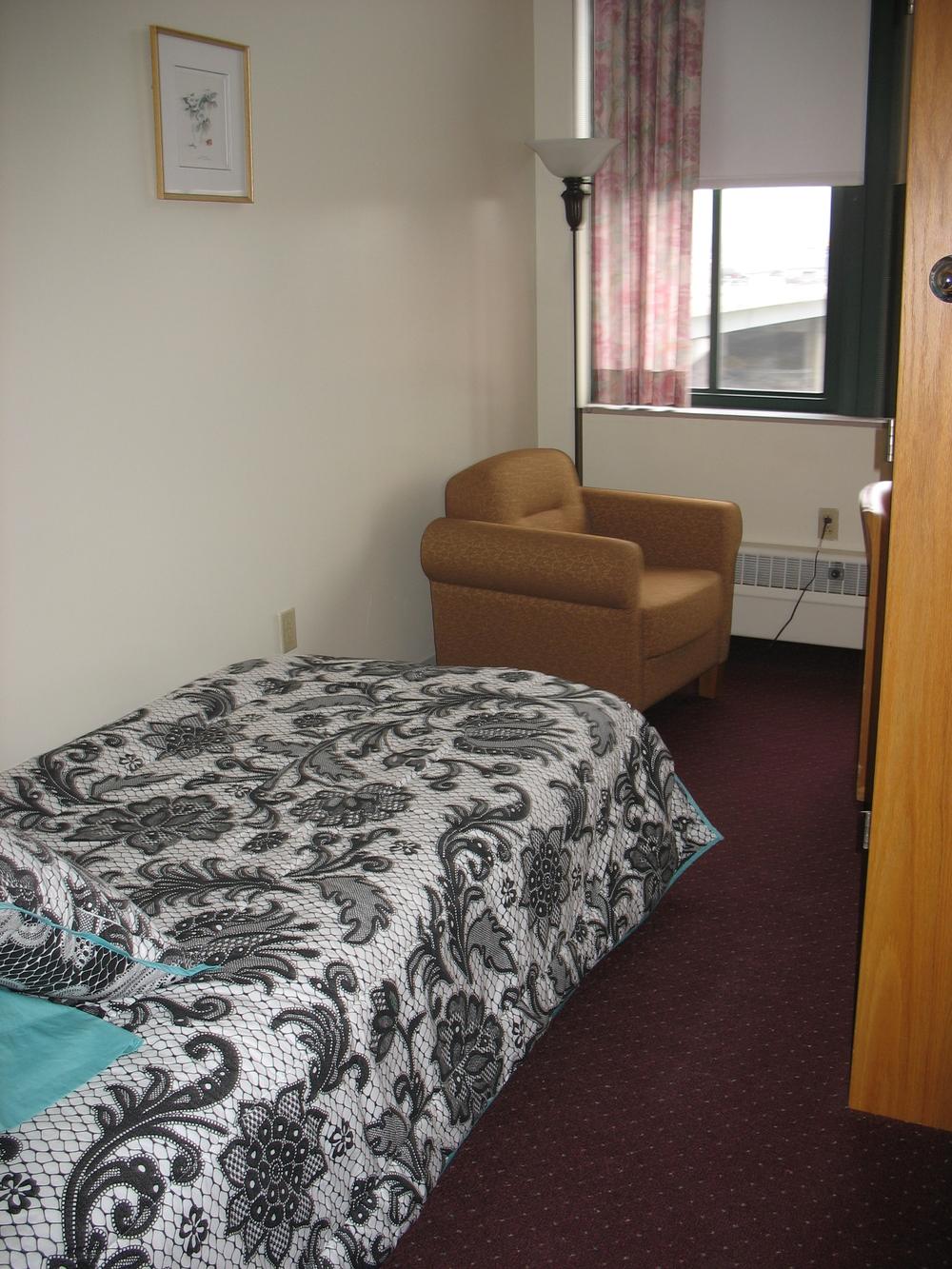Advertisement
Homelessness On The Decline In Boston
Resume
It seems counter-intuitive, with foreclosures still climbing and unemployment still high, that homeless shelters aren’t bursting. But in fact, The Pine Street Inn is quietly closing shelters, according to Lyndia Downie, the president of the inn.
"For the first time since I can remember, and I’ve been doing this for 25 years, we’ve actually taken down shelter beds. Instead of the number growing, we’ve actually been able to say we’re not putting up more shelter beds, we’re taking them down," Downie said.
On Tuesday the inn closed the Boston Night Center, an emergency shelter which had 55 beds for men and women. Earlier this year it shut down over 100 beds at a shelter in Dorchester. Overall there is a 24 percent decrease in shelter demand in the city, which mirrors a national trend.
A New Approach To Homelessness
The decline is due to a new approach called Housing First, which turns the model for dealing with the problem on its head.
Over the past few years, The Pine Street Inn placed about 200 chronically homeless people, who have lived on the street for an average of 10 years and have serious mental illnesses. They didn’t have to fill out housing forms, get sober, or even take their medication. Downie says “eligibility” is the old way of thinking about addressing homelessness.
"This really reverses that completely, and says, 'we are going to put you in housing and while you are in housing we are going to work with you on how to make your meals, we’re going to talk with you about medication, we are going to work with you about staying sober.' It’s really a very different philosophical approach," Downie said.
The Pine Street Inn runs 550 units of permanent housing in 29 locations in Boston and Brookline. One of these units is the Wish Program, which has 10 permanent rooms for women with mental illness.
"The rooms are single rooms, they all have locked armoires, every room has a TV," said Debbie Ouimete, who runs the program. She said the rooms are like those in a college dorm with a shared kitchen.
Almost 90 percent of the people in this type of program stay for at least three years.
The Benefits Of Permanent Housing For The Homeless
The strategy of moving resources away from emergency shelters to permanent housing is happening statewide, and has reduced the individual homeless populations in Framingham, Worcester and Springfield. Family homelessness is at a 30-year high because of the recession.
The new approach is also saving the state money – nearly $2 million a year from Boston alone. That’s because if people are in permanent housing, they use fewer emergency services, such as shelters and the emergency room.
Jim O’Connell, of Boston Health Care for the Homeless, says he now sees people in their homes.
"What’s really remarkable when they get into housing is that struggle, that daily struggle to survive outside is gone, and much of that attention and the priority turns to themselves and how they can take better care of themselves," O'Connell said.
Downie thinks of one man, Joe, who has lived on the street for 25 years and is mentally ill. She asked him to come and take a look at a room where he could live permanently.
"And he said, 'I don’t really want to go. I’ve lived here a long time, I’m perfectly happy.' So he went up to the top floor in the building, and took his bags, and said, 'Oh, this is better than I thought,' shut the door and he slept for 48 hours, and we thought, 'Oh my God is he OK,'" Downie said.
When staff got the door open, they found Joe’s bed untouched and Joe sleeping on newspapers on the floor.
"And he said, 'Yeah, I think this is going to work out for me,' and staff said, 'We were really worried about you.' He said, 'I’m exhausted and I haven’t had a good night sleep for 25 years.'"
Downie says she knows homelessness won’t be fixed entirely, but the reduction in shelter beds proves this new model works. Downie says, by housing chronically homeless people like Joe, they have a more stable life and the state saves money.
This program aired on September 29, 2010.